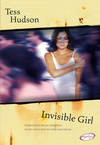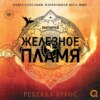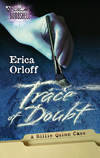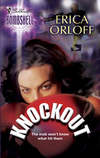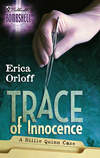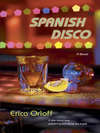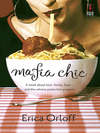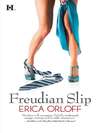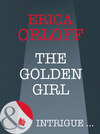Buch lesen: «Invisible Girl»
Also by TESS HUDSON
DOUBLE DOWN
And writing as ERICA ORLOFF
DO THEY WEAR HIGH HEELS IN HEAVEN?
MAFIA CHIC
THE ROOFER
DIVAS DON’T FAKE IT
DIARY OF A BLUES GODDESS
SPANISH DISCO
Invisible Girl
Tess Hudson
With great love, to my mother, Maryanne
ACKNOWLEDGMENTS
A long time ago I was befriended by a Vietnam-era veteran who taught me a great deal about writing and art and even faith. I was an impressionable twenty years old at the time, and I glimpsed a different side of the war from what I remembered on the evening news when I was a little girl. I owe a great deal of the imagery of this book to Ed. Far away, but still in my thoughts.
As always, I thank my agent, Jay Poynor, for his support. And I especially must thank, from the bottom of my heart, my editor Margaret Marbury. For some reason, I have never written about the mother-daughter relationship, always choosing in my books to write about fathers and daughters. Margaret urged me to add the character of Mai, and when that happened, it was like a dam bursting. This novel is really the story of mothers and daughters and bonds that are never broken.
I must thank my own mother, whose friendship is one of my adult life’s most precious gifts. I also pause to remember my grandmother, Irene Cunningham, whose absence never stops being a great emptiness in my heart. I also want to thank Alexa, Nicholas, Isabella and Jack…by loving my children so totally, the story of Mai was able to come to life.
My father…somehow his stories of Manhattan are always interwoven in my books. This one is no exception.
My sister Stacey Groome is one of my biggest cheerleaders. She has read every one of my books, and I am so lucky to have her as a friend.
Other family and friends: my sister Jessica, Kathy J., Kathy L., Nancy, Cleo, Pammie.
I’d like to acknowledge the wonderful team at MIRA, my publisher. I especially love my cover. Thank you to Sasha Bogin for her insights and editorial direction, and for her enthusiasm for this book. And the members of Writers’ Cramp. I began this novel three times, always agonizing about weaving the past and present. Jon, especially, encouraged me to travel deeper into the past and into Vietnam and Laos as I wrote, and the book is better for it.
Finally, I would like to acknowledge J. D. He patiently let me read aloud to him, and felt every tear and heartbreak that my characters did. I love you.
If a man speaks or acts with an evil thought, pain follows him.
—Buddha
In war, truth is the first casualty.
—Aeschylus
We will not learn how to live together in peace by killing each other’s children.
—Jimmy Carter
How could man rejoice in victory and delight in the slaughter of men?
—Lao Tzu
I’m fed up to the ears with old men dreaming up wars for young men to die in.
—George McGovern
Contents
Prologue
Chapter One
Chapter Two
Chapter Three
Chapter Four
Chapter Five
Chapter Six
Chapter Seven
Chapter Eight
Chapter Nine
Chapter Ten
Chapter Eleven
Chapter Twelve
Chapter Thirteen
Chapter Fourteen
Chapter Fifteen
Chapter Sixteen
Chapter Seventeen
Chapter Eighteen
Chapter Nineteen
Chapter Twenty
Chapter Twenty-One
Chapter Twenty-Two
Chapter Twenty-Three
Chapter Twenty-Four
Chapter Twenty-Five
Chapter Twenty-Six
Chapter Twenty-Seven
Chapter Twenty-Eight
Chapter Twenty-Nine
Chapter Thirty
Chapter Thirty-One
Chapter Thirty-Two
Chapter Thirty-Three
Chapter Thirty-Four
Chapter Thirty-Five
Chapter Thirty-Six
Chapter Thirty-Seven
Chapter Thirty-Eight
Chapter Thirty-Nine
Chapter Forty
Chapter Forty-One
Chapter Forty-Two
Chapter Forty-Three
Prologue
To Mai, the East River was as mysterious as the moonlit river near her childhood village in Vietnam, but it was colder—and more dangerous. In New York, she didn’t need to fear snipers or a sudden assault from American helicopters, like hawks circling above, waiting to swoop, the smell of napalm burning. She needed to fear the river itself, as if it were alive, living, in the way Buddhists taught that all things were living and connected.
Mai knew no single current controlled the river, no orderly flow ordained by the moon and the tides. Instead, currents fought against each other, colliding and viciously warring with each other, waiting to pull anything into the river’s depths. Beneath the surface were cars and old appliances, trash, worn tires, the silt making visibility impossible. NYPD scuba divers who came to search for jumpers couldn’t see their own hands inches from their faces. Mingled in the waters, too, down in the silt, were bodies. Murder victims and jumpers in the East River were as much a part of New York lore as alligators in the sewer system. Mai knew bodies lurked.
No one survived the East River. No one. The currents would drag a body down deep, as if claiming it for some unseen angry god. She feared the bodies. The dead luring her, their skeletal fingers beckoning, whispers in the night, join us.
Mai tried not to think of her children. She longed for a last hug, to hold them tightly on her lap and breathe in their innocence. She felt her resolve weakening. Then she pictured Jimmy. He was her brave soldier, her hero, and from the first day she saw him appear through the tall reeds into her village, she loved him. Thoughts of Jimmy, of his fearlessness, like a tiger in the grass, stalking, patient, courageous, filled her.
The air whipped at her silk dress, the one he loved best, and her hair, long and black, flew about her face. She almost lost her balance. Then, with a mournful glance skyward, she whispered.
Forgive me.
And Mai Malone, her thin body lithe and graceful, arms stretched wide, stepped off the pier and into the ebony waters swirling below her.
Chapter One
Clinton.
Not for the first time, Maggie Malone shook her head in wonder at how trendy Hell’s Kitchen had become. They’d even rechristened the area Clinton, after DeWitt Clinton, a New York governor from over a hundred years ago. Everyone knew Clinton Court and the old DeWitt Clinton school, but face it, Maggie thought, the name Clinton allowed real-estate developers to make this part of the city sound more attractive. Who wants to pay a million dollars for a co-op in Hell? The yuppies had invaded like bacteria spreading through an infected sore. They made Clinton fashionable. But for her, it would always be Hell’s Kitchen.
Emphasis on Hell.
Down at the end of the bar, a guy with an expensive haircut waved an American Express platinum card and snapped his fingers. Maggie took her time strolling over to him and the three girls—two brunettes and a blonde, all in low-slung jeans and expensive tops—hanging all over him.
“I’d like a bottle of your best champagne,” he said loud enough for pretty much anyone in the bar to hear, though the crowd was thinning out.
“First, we don’t carry champagne, and second, we don’t take AmEx.”
“Fine, I’ll put it on a different card.”
“We don’t take cards, period.”
“What?” He looked at her incredulously, then he shook his head. “Fine. Give us four sour appletinis.”
Maggie gave a slight nod and moved down the bar a couple of feet to mix the neon-green concoction. When she’d been a little girl, the Twilight had been a hellhole. You didn’t even walk in if you weren’t neighborhood. Not if you knew what was good for you. She’d started out running the register, standing on a wooden crate. Her brother Danny had cleaned tables. They’d both graduated to bartender before their eighteenth birthdays. But back then the drinks had been beer, bourbon, scotch, vodka, boilermakers. Not appletinis and cosmos.
The yuppies had started coming in a few years before. Danny was rude to them. Maggie was ruder. She felt desperate to hold onto the Twilight the way it was. The way it had always been. Her familiar alcoholics. The ones she drank with, the ones she threw out at 3:00 a. m. The ones who knew her father.
She served the appletinis and then went down to the far end of the bar to refill the beer in front of Charlie—no last name that she knew of—an old-timer.
“What’s eatin’ you, Maggie? You look like you lost your best goddamn friend.”
She shrugged. “I just hate seeing the place like this.”
“What? Crowded? Making money hand over fist?”
“You know what I mean,” she snapped at him. His nose was like a road map of crisscrossed blood vessels, and he had a way of curling over his beer, lest someone should steal it.
“So sell.”
“I keep thinking about it. Got another offer this week. Haven’t talked to Danny yet.”
“What’s the old man think?”
She shrugged. “We haven’t heard from him in months.”
“Wanna know what I think?”
“Sure.”
“Sell the fuckin’ place. I don’t know what the hell you’re holding onto it for. Take the money, go retire to friggin’ Florida or something. Get out of the winter. Al Roker said it was minus ten with the windchill this morning. That’s colder than a witch’s tit.”
“Point taken, Charlie.” Maggie noticed how the spittle gathered in the corners of his mouth, and his teeth were stained with tobacco, like the ceiling of the Twilight itself. He was one of the last of the old-timers. They were dying off.
God, despite its patina of hopelessness, she loved the place. In the midst of Hell’s Kitchen, it was her oasis. Her temple and shrine to all that she loved.
They raced into the Twilight.
“Hi Daddy!” Maggie squealed, both her front teeth missing. He picked her up and kissed her nose, depositing her on a bar stool and filling a highball glass with Coke.
“Don’t tell your mother I’m giving you Coke. If she asks, tell her I gave you milk.”
Danny climbed up on the stool next to Maggie. Their father tousled Danny’s hair and poured him a soda, too. Then their father leaned two elbows on the bar and asked them about their day.
A few stools away from Maggie, she noticed a man with prison tattoos on his forearms. She waved at him, and he winked at her.
Danny told their dad about his class’s field trip to the Museum of Natural History. Maggie couldn’t wait to be in third grade and take that trip, too.
“Dad…the elephant had tusks that went up to the ceiling!”
“Did it try to eat you?” their father joked.
“No. It was stuffed.”
“Oh…well, you two better get upstairs to Mom before she stuffs the both of you. Finish your sodas, and no telling.”
Maggie dutifully sucked the last of her Coke through a straw, slid down from the stool, and ran back outside with Danny to the double doors leading to the apartments above the bar. They took the stairs two at a time to apartment 2B.
The door was open before they even got there. “Take your shoes off!” their mother scolded them.
Maggie, in the tartan plaid skirt, blue kneesocks, white blouse and blue blazer of Saint Bernadette’s Catholic School, complied and slipped off her Mary Janes. Danny untied the laces of his shoes. He wore his blazer but had loosened his tie the second the last bell had rung.
Only with shoes off did they run into her arms.
“How was your day?” she asked them. Her accent made her cut the endings off words sharply, slightly. “You have good day?”
They both nodded.
“Come.” She took them each by the hand and led them to the shrine to Buddha in one corner of the living room. A white altar cloth covered the table. A pewter bowl contained fruit, an offering for him. A vase held flowers.
Out of habit, in the ritual they did each day, Maggie and Danny bowed deeply. Then they lit incense. It was Maggie’s turn. She withdrew an incense stick—jasmine-scented—and took a wooden match and lit it.
“Thank you, Buddha, for my good test score in science, and for Mark Callahan getting the chicken pox,” Maggie said.
“Why you thank Buddha for that?” Her mother asked.
“’Cause then he wasn’t in school to pick on me. He pulls my hair.”
“Oh,” her mother said and smiled. “Your turn Danny.”
“Thank you, Buddha, for my trip to the museum. I got to see a woolly mammoth.”
They bowed again with their mother. Maggie loved their Buddha shrine. They had a few statues of him, some solemn and meditative, but one was a big, fat Buddha with a round belly. She liked how happy he looked, like he was laughing.
“Come,” their mother commanded. Next they moved to a small shrine of Jesus and Mary, the Blessed Virgin. “You tell him thank-you. Thank his mama, too.”
So they went through their thank-yous again, this time adding an Our Father and Hail Mary. Maggie didn’t like praying to Jesus as much. Compared to Buddha, he was sad, his statue plastic and in Technicolor, with painted-on red blood dripping from his palms and feet and side. The stations of the cross at St. Bernadette’s were even more graphic—to remind the children of our Lord’s pain and suffering, said Sister Patricia.
Maggie had never told the Carmelite sisters at St. Bernadette’s about Jesus and Buddha being best friends, according to her mother. “Best to cover all your bases,” her mother had said. “Keep you safe.” Somehow, Maggie didn’t think the sisters would approve of covering their bases.
Maggie, Danny and their mother made the sign of the cross. Then it was homework time. Around five, Maggie’s father came up from the bar for his dinner break. That was always her favorite part of the day. Not because she got to see him and spend time with him, although that certainly pleased her. It was the strange thrill she got from watching her father walk through the door and the expression on his face when he saw her mother.
Maggie tried to capture the moment in her mind, but it never was the same as seeing it, being there with them. But Maggie was convinced the earth stopped moving—just for a split second. He opened the door, shut it, took off his shoes, lined them neatly next to Maggie’s and Danny’s. Then he came into the dining area, and when he first caught her mother’s eyes, it was there—you could feel it. Her mother’s breath left her and her father’s heart stopped. Maggie was sure of it.
Her mother was always calmer with Daddy around, certain they would all be safe now. She would serve him supper, but she always made sure to touch his hand, to rub his arm as she put his dinner on his plate. And Maggie’s father would not curse, he wouldn’t raise his voice, not even a tiny bit. He wouldn’t do anything loudly. For that time, that meal, he was under her mother’s spell, and they weren’t in Hell’s Kitchen. They were someplace else. They may have been above the roughest bar on Thirty-ninth Street, but inside was a piece of heaven, watched over by Buddha and his brother, Jesus—because, Maggie’s mother said, someone as wise as God would have a lot of children.
Maggie walked away from Charlie and prepared to break down the bar. It was late; she was tired. The phone rang, and she picked up the extension by the register.
“Angel?”
“Hi Bobby,” she said.
“I’m just getting off work. I caught a case. Some guy killed with a pickax. There’s no end to the creativity in this city.”
“You sound tired.”
“I am. I was thinking of coming by, though. I just need to see you.”
“Sure. I’ll be here.”
Maggie hung up and continued breaking down the bar. She had the lone cocktail waitress start stacking chairs on top of tables. The loudmouth with the three girls wasn’t taking the hint, so Maggie raised the house lights and turned off the music. Finally, the creep raised his hand and wrote on an imaginary check in the air.
“Thank God,” she muttered.
She took his money, gave him his change, sent Charlie home and told the waitress she could go. She collected the tips on the bar—the rich guy had left her a single dollar. Charlie, who lived from disability check to disability check, had left her a five.
She was alone. She went to the register to count the till. On top was a big happy Buddha. He smiled at her and she at him. She rubbed his belly for good luck.
Next to the register, taped to the mirror behind the bar, was the first twenty-dollar bill the Twilight had ever earned. It was signed by Uncle Con, who, as the story went, had bought her father a shot of bourbon to celebrate the opening. He’d then signed the bill and up it had gone. Next to that was a photo of her father and brother and her from three years before. Danny was smiling; she was open-mouthed, squealing with laughter. Their father had just told them a dirty joke and someone had snapped the picture, right there behind the bar of the Twilight.
She hadn’t heard from her father in a while. She hadn’t seen Danny in three weeks.
The worry made her want a drink.
She looked at Buddha. “What cosmic mind fuck has a recovering alcoholic owning a bar?” she asked him. Then she patted his belly and poured herself a Coke and waited for Bobby to come. He was the one, and they were right for each other. Like her mom and dad. Every time she saw him, she felt the earth stop for just a moment. When he was near her, she felt safe.
Chapter Two
Danny Malone felt around his mouth for the loose tooth. It was the last molar on the right, and if he moved his tongue against it, the thing wiggled, the unique, slightly salty taste of blood intensifying. He couldn’t use his right arm at all. He guessed that shoulder was dislocated. With his left hand, he felt his face and discovered it had the texture of raw hamburger meat.
He slumped over in the driver’s seat of his somewhat battered Lincoln Town Car. The pain was so bad he felt as if he were going to pass out. He looked up at the six-story red brick building and could see the light on in his sister’s apartment on the second floor. All he had to do was get up there. Just get to her, Danny. Like a penitent man on a pilgrimage, he thought only of reaching his Mecca. The one place where his world made a little sense.
All his life, Danny’s sister Maggie had fixed everything. He was older—by two years and change—but she was the one who kept out of trouble—and tried to keep him out of trouble. She was like their mother. After their mom had died, Maggie had been the one to retain the rituals, the Buddha, the crucifix. She was the one who made sure he and his father ate home-cooked meals and had clean clothes.
Danny’s head pounded and he struggled to focus. From the time they were little, Maggie would check out all his scrapes and bruises, surveying the damage. Once they were teens, and then adults, she would look for more serious scrapes. Like bullet holes and knife wounds.
She was like his other half. Anyone with a set of eyes could see they were related. They both had the same jet-black hair, which sometimes, in the right light, took on a bluish sheen, black eyes, slightly almond-shaped and exotic, and pale skin. He was well built, muscular, and had a pair of dimples that belied his toughness; she was delicate, with high cheekbones that carved out hollows beneath them, just like their mother, and hair that fell nearly to her ass. His nose had been broken twice, so it leaned a little to the left, but they were clearly siblings.
Danny opened the car door with his functional hand and climbed out, slamming the door behind himself. He looked up and down the street through the slits of his swollen eyelids. He turned up the collar of his army jacket—his father’s old one, threadbare, with an ancient maroon-brown stain of blood on the arm, either his father’s or a Vietcong’s. Danny knew if anyone saw his face, he’d scare the shit out of them, and they’d call the cops, so bending his head into the wind, he started toward his sister’s building.
Each step sending shock waves of pain through his body, he made it to the building’s heavy door and then up to the second floor and her apartment—2B. He fiddled with the lock, pulling the copy of her apartment key from his pocket.
Suddenly, the door flew open, a male voice shouted, “Freeze, asshole,” and a gun was pointed at his head. He saw Maggie, her beautiful face ashen by the sight of him. He pulled his collar down, letting her fully see his face—what was left of it. She screamed, and then Danny knew he could safely give in to the pain. He fell to the floor and let sweet oblivion overtake him.
Maggie knelt on the floor by her brother, oblivious to the blood that was smearing the flannel pajama bottoms she had just changed into. She took his head in her lap and cradled it, brushing a lock of blood-soaked hair from Danny’s face as she rocked ever so slightly.
Bobby Gonzalez shouted at her to get away. “You don’t know who this fucker is. Call 911. Jesus Christ!” He kept his gun drawn.
“No!” Maggie looked up at him, her chin quivering. “This is Danny.”
“Your brother?”
She nodded.
“Christ!” Bobby put his service revolver back in his ankle holster, his hands shaking from the adrenaline rush, and leaned down next to her. “He needs an ambulance.” Bobby put two fingers on Danny’s neck, feeling for a pulse, then reached for the cell phone at his waist.
“No.” Her voice was etched with panic. “No, no…Look…I don’t know why he’s in trouble, and I can’t really explain it all right now, but you have to trust me. I have to handle this here at home.”
“Handle this? Angel, we need to get him to a hospital and then find out who did this to him. You can’t take care of this. You’re in shock. Look, just stay calm and let me call an ambulance.”
Maggie recognized his “cop voice”—authoritative, soothing in an emergency, talking to her as if she were a child. “No…look, I’m begging you. Begging you. Please let me take care of this.”
“Here? Jesus, Maggie, what are you talking about?”
“I don’t have time for this, Bobby.” Her voice careened and changed to one hostile and strong, equally authoritative.
“Fuck! This has to do with your family shit.”
Maggie nodded, wincing a second at Bobby’s anger. “Stop being a cop for a minute and be my friend. Help me.” She looked up into his face. His eyes were so dark, she couldn’t see the pupils for the irises, and she watched him clench and unclench his jaw, then pass his hands through his hair. He paced back and forth a few times. Finally, his anger seemed to be replaced with worry.
“Maggie, what kind of trouble is your brother in? What kind of trouble are you in?”
“Please…We can talk more when he’s in better shape. I need boiling water. I have a sewing kit in my bedroom closet. Gauze and tape in my bathroom closet. I…think there’s an Ace bandage in there. Towels. Um…Shit…um, I need rubbing alcohol. Neosporin.” She tried to picture her medicine cabinet, mentally scanning each shelf from left to right, to see what she had that could help Danny. “Oh, and there’s a bottle of Tylenol No. 3, top shelf, medicine cabinet. I need that and some applesauce and two spoons.”
Bobby looked at her. “You’re serious about this.”
“Look, please just do what I ask and I swear I’ll tell you everything later.”
He hesitated, then finally stood and walked past her and Danny. Maggie heard Bobby rummaging through closets and the medicine cabinet, slamming doors, spilling things onto the floor, hurrying. He returned with most of what she asked for and then went to boil water in her small kitchen.
Maggie looked down at Danny, who was unconscious. She wondered if kitchen-table stitches were anything like riding a bicycle, that once you learned how to do them, you never forgot. It wasn’t all that different from sewing cloth. And the Malone men were never ones to worry about leaving a scar. She told herself it would all come back to her.
She was fourteen, and after Jimmy Malone had locked up the bar, he called upstairs to their apartment. She answered on the first ring.
“Mags?”
“Yeah, Daddy?”
“I need you to come down to the bar. Danny’s doing some things for me…won’t be home until late.”
Things. Maggie knew that could mean anything from driving out with Uncle Con to New Jersey to bury something, to hiding money in a hole in the wall behind the toilet where there was a loose tile. It also meant not asking questions.
“Be right down.”
The Twilight bar was in Hell’s Kitchen, which itself was bound by the Hudson River. Eventually, if you walked west, you’d hit the water, as black and ugly and foul-smelling as it was. When she was very little, she’d imagined the Hudson River as the sea, mystical and grand, carrying the scent of fresh water and the sounds of sails whipping into the wind. But she was older now and realized it was just the dirty, brown Hudson. Hell’s Kitchen’s other border, depending on who you asked, was Eighth. Either way, it was a haven for the Westies and addicts, and the streets were harsh. But Maggie had never felt unsafe. She knew everyone in a thirty-block radius was aware of her father’s power in the small jungle of their neighborhood. He’d fought two tours in Vietnam, and some people said he’d flown for the CIA in Laos. Or maybe it wasn’t for the CIA, but for some shadowy arm of the government that had condoned paying him $10,000 cash each month back in 1973. Maybe he’d flown for Air America. That was the rumor, at least, and she had no reason to doubt it, collecting small clues like a hungry bird snatched up bread crumbs. She stored the information away in her mind, hoping to one day understand all that her father was. After he’d come back from Laos, some of the money—from whoever had paid it to him—had gone to buying the bar.
Maggie’s teeth chattered. Her father’s mysteries always made her nervous. He was the antithesis of what she remembered of her mother. Where she embodied the rituals of incense and quiet and candles, her father and Uncle Con immersed themselves in the never-spoken threat of violence—not against her or Danny or her mother when she’d been alive, but against anyone who dared to even breathe on them. Maggie pulled a sweatshirt over her head and looked around her bedroom. The far wall was lined with shelves on which perched at least a hundred Buddhas, maybe more. Some had been her mother’s, some her father had bought her in Chinatown. And some, she knew, came from faraway places in Asia from before she was born. On the opposite wall was a crucifix, a pretty wooden one with a pewter Jesus. On her dresser were the spilled secrets of a teenage girl—hair clips, lip gloss she had just been allowed to start wearing, earrings and rings and fortune-cookie promises of good luck and prosperity, movie stubs and cutout pictures of movie stars she planned to stick on her bulletin board.
She took a deep breath to settle her nerves and left her bedroom and then the apartment, locking the door behind herself. She descended the metal staircase to the back entrance of the bar, the scent of beer as familiar to her as her own name, as her reflection in the mirror.
Maggie walked through the back of the bar and then made her way to the cluttered office, where she assumed her father would be waiting for her. He was, though he was slumped over his desk. He looked up, with effort, as she came in the door.
“What’s the matter?” she asked, even as she saw the wet crimson stain on the back of his shirt.
“Nothin’,” he said, winking at her, his face sweaty and ashen. “I just need you to do me a favor, baby girl, and dig this stupid thing out of my shoulder, out of my back.”
“What stupid thing?”
“A bullet. I’d do it myself if I could reach, but I can’t.”
Maggie felt queasy, not because he’d been shot, but from the idea of sticking a knife, tweezers, anything, into a hole in someone’s flesh, let alone her father’s.
“Daddy…” she said in a whisper, laden with the question, there in the way she spoke his name, do I have to?
“I can’t ask Danny. He’s doing something for me. And I can’t get Uncle Con on the phone. Please, I’m asking you. I’m starting to run a fever, and I’ve got to get it out of me. I’ll talk you through it. Piece of cake. You’re a Malone.”
Maggie nodded. “Are you going to be okay?”
“I promise. And you know I never promise unless I can deliver the goods. Please, baby.”
She breathed deeply, not sure if she would pass out or not. “I’m going to get me a drink.”
“Sure. Get me one, too.”
Maggie went out to the bar and pulled down a bottle of scotch. She took two fat water tumblers and set them on the bar. She hated scotch. Although her father had let her and Danny drink beer since they were small, she never drank anything uglier than peppermint schnapps. But she wanted something powerful and nasty. She poured two generous scotches as if she were pouring water. She took one and downed it in a few gulps, fighting the retching feeling in her throat and gut, emitting an audible gag. She put the tumbler on the bar and literally shook her shoulders and head, trying to keep the vile liquid inside her. Then she refilled her glass and brought it along with her father’s drink into the office.
A first-aid kit was open and his shirt was off. The kit looked like an army-issue one, and she imagined it had come home from Vietnam with him, long before she had even been born.
Der kostenlose Auszug ist beendet.

